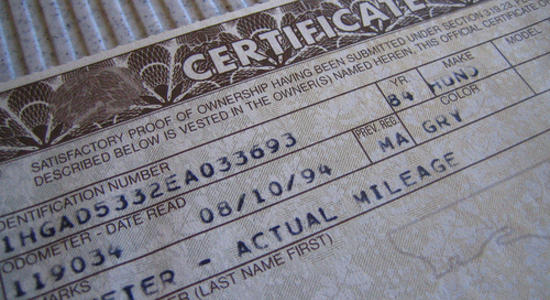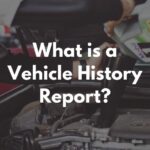Last Updated on March 22, 2018 by Jason Mason
Title brands are not what you think they are. They do not represent a “brand name” as we know it, for example: Ford. Title brands carry a negative connotation with them. A title brand has everything to do with a vehicle’s history. It is usually indicated in a car’s certificate of registration. When buying a vehicle, pretending to be Nancy Drew or Hercule Poirot can be useful. You have to play detective to know a vehicle’s past.
What do title brands tell us?
Title brands tell a person whether a used vehicle has been subject to certain types of damage, like whether it was totaled, flooded, was a prior police car or taxi, or was once a lemon. It tells you whether a certain vehicle can provide you safety while you are on the road. It also helps you in making a decision whether to buy, or assess the vehicle according to the damage it took and whether you will pay a certain purchase price.
Examples of title brands
- Damaged.
- Dismantled.
- Gray market.
- Junk.
- Lemon law buyback.
- Prior police car.
- Prior taxi.
- Rebuilt.
- Reconditioned.
- Remanufactured.
- Replica.
- Revived junk.
- Revived salvage.
- Salvage.
- Scrap vehicle.
- Totaled.
- Warranty returned.
- Water damage.
These title brands are commonly used by most states. Most of them are self-explanatory. Title brands tell you a car’s history, whether it was damaged or was once used as a taxi. These title brands should be considered as a red flag. For example, a prior taxi title brand would mean that the car was heavily used and would most likely have a high mileage. Having a high mileage would mean a large amount of time on the road and being statistically wise, it tells you that it may have been more exposed to accidents and damage. So, if a car is branded as a “prior taxi,” is an old model and has a low mileage, then you should raise your eyebrows and be suspicious. The car’s odometer might have been rolled back to give it a lower mileage in order to command a higher price. Gray market vehicles are vehicles that were not manufactured in the United States and are most likely not built according to U.S. standards with regard to safety requirements. Vehicles like these may need to be modified to comply with U.S. standards. The vehicle must be approved by the Federal Environmental Protection Agency (EPA) and Federal Department of Transportation (DOT) before it can be registered. A “reconditioned” brand title is actually a vehicle that has been considered as “salvaged.” A possible scenario is that a car was totaled and was considered by an insurance company as a “scrap,” which means they have no intention of rebuilding it. The insurance company pays the insured owner and the latter decides to rebuild the car anyway. Title brands however are not enough to know a vehicle’s past. A VIN (vehicle identification number) check or VHR (vehicle history report) will be more descriptive of a car’s condition.




